-
 Bitcoin
Bitcoin $118000
-1.29% -
 Ethereum
Ethereum $3758
-3.52% -
 XRP
XRP $3.113
-5.04% -
 Tether USDt
Tether USDt $0.9998
-0.05% -
 BNB
BNB $818.5
-3.23% -
 Solana
Solana $181.9
-5.10% -
 USDC
USDC $0.9997
-0.04% -
 Dogecoin
Dogecoin $0.2239
-8.33% -
 TRON
TRON $0.3233
0.95% -
 Cardano
Cardano $0.7842
-6.81% -
 Hyperliquid
Hyperliquid $43.35
-2.12% -
 Sui
Sui $3.894
-9.97% -
 Stellar
Stellar $0.4176
-6.99% -
 Chainlink
Chainlink $17.97
-6.68% -
 Bitcoin Cash
Bitcoin Cash $576.7
-2.30% -
 Hedera
Hedera $0.2671
-7.23% -
 Avalanche
Avalanche $24.64
-6.12% -
 UNUS SED LEO
UNUS SED LEO $8.972
0.08% -
 Litecoin
Litecoin $108.1
-6.55% -
 Toncoin
Toncoin $3.198
-5.94% -
 Shiba Inu
Shiba Inu $0.00001325
-6.80% -
 Ethena USDe
Ethena USDe $1.001
-0.04% -
 Uniswap
Uniswap $10.27
-7.02% -
 Polkadot
Polkadot $3.935
-7.49% -
 Monero
Monero $317.7
-2.24% -
 Dai
Dai $0.9999
0.00% -
 Bitget Token
Bitget Token $4.550
-3.85% -
 Pepe
Pepe $0.00001179
-8.68% -
 Cronos
Cronos $0.1418
-2.34% -
 Aave
Aave $286.2
-6.49%
How to buy and sell Stargate Finance (STG) coins
To buy or sell STG coins, choose a reputable cryptocurrency exchange based on factors like security, liquidity, fees, and supported payment methods.
Nov 29, 2024 at 11:22 am

How to Buy and Sell Stargate Finance (STG) Coins: A Comprehensive Guide
1. Understanding Stargate Finance and the STG Coin
Stargate Finance is a cross-chain liquidity transfer protocol built on Cosmos. It enables the seamless transfer of assets across multiple blockchain networks while maintaining liquidity and minimizing slippage.
STG is the native token of Stargate Finance. It serves several key functions within the protocol:
- Governance Rights: STG holders can participate in governance decisions related to the protocol's development and operations.
- Protocol Maintenance: A portion of STG fees are used to support the ongoing maintenance and expansion of the Stargate protocol.
- Cross-Chain Transactions: Users pay a fee in STG to facilitate the transfer of assets between different blockchains on Stargate.
- Staking: STG holders can stake their tokens to earn rewards and participate in the protocol's security.
2. Choosing a Cryptocurrency Exchange
To buy and sell STG coins, you will need to select a reputable cryptocurrency exchange. Consider the following factors when choosing an exchange:
- Security: Verify the exchange's security measures, such as two-factor authentication and cold storage.
- Liquidity: Opt for an exchange with a high trading volume for STG to ensure efficient execution of trades.
- Fees: Compare the trading fees charged by different exchanges to find the most cost-effective option.
- Supported Payment Methods: Ensure that the exchange supports your preferred payment methods for depositing and withdrawing funds.
3. Creating an Account on the Exchange
Once you have selected an exchange, you need to create an account. This usually involves providing basic personal information, verifying your identity through KYC (Know Your Customer) procedures, and setting up security measures.
4. Funding Your Account
After creating an account, you will need to fund it to purchase STG coins. Most exchanges accept a variety of payment methods, including bank transfers, credit/debit cards, and other cryptocurrencies.
5. Placing a Buy Order for STG
Navigate to the STG trading page on the exchange and choose the "Buy" option. Specify the amount of STG you want to purchase and the price you are willing to pay. The exchange will match your order with a seller who meets your criteria.
6. Executing the Trade and Receiving STG Coins
Once your buy order is matched, the trade will be executed, and the purchased STG coins will be credited to your exchange wallet.
7. Selling Your STG Coins
To sell your STG coins, follow the same steps as in Step 4, but choose the "Sell" option instead. Indicate the amount of STG you want to sell and your desired sale price. The exchange will match your order with a buyer who meets your criteria.
8. Withdrawing Your STG Coins
Once you have sold your STG coins, you can withdraw them into your personal wallet. Select the "Withdraw" option on the exchange, enter the withdrawal address for your wallet, and confirm the transaction.
Disclaimer:info@kdj.com
The information provided is not trading advice. kdj.com does not assume any responsibility for any investments made based on the information provided in this article. Cryptocurrencies are highly volatile and it is highly recommended that you invest with caution after thorough research!
If you believe that the content used on this website infringes your copyright, please contact us immediately (info@kdj.com) and we will delete it promptly.
- AI Tokens, Ethereum, and Market Leaders: A New Era?
- 2025-07-29 21:10:13
- Linea Airdrop: Ethereum Alignment & the L2 Network's Bold Move
- 2025-07-29 21:10:13
- Bitcoin, Crypto Mining, and Finland: A Nordic Boom in 2025
- 2025-07-29 20:30:12
- Crypto Carnage: KNC and 1000CAT Among Today's Top Crypto Losers
- 2025-07-29 20:30:12
- GENIUS Act: Stablecoin Regulation Heats Up in the US
- 2025-07-29 18:50:13
- Crypto Presale Mania: Is Punisher Coin the Next Bitcoin?
- 2025-07-29 18:50:13
Related knowledge
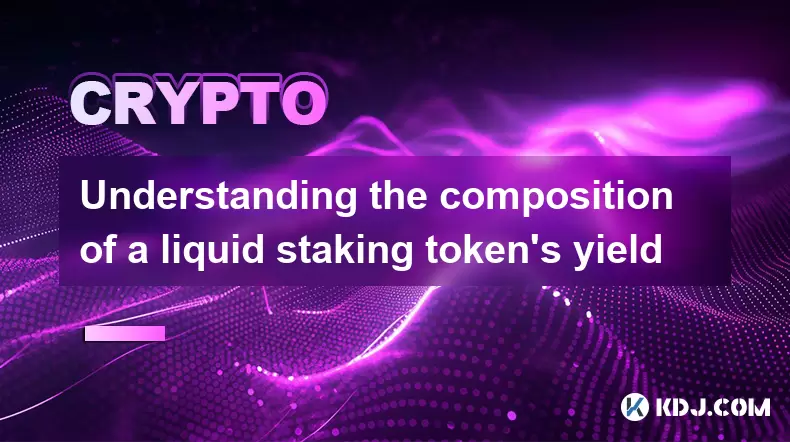
Understanding the composition of a liquid staking token's yield
Jul 20,2025 at 09:07am
What Is a Liquid Staking Token?A liquid staking token is a representative asset issued to users who stake their native cryptocurrency on a proof-of-st...
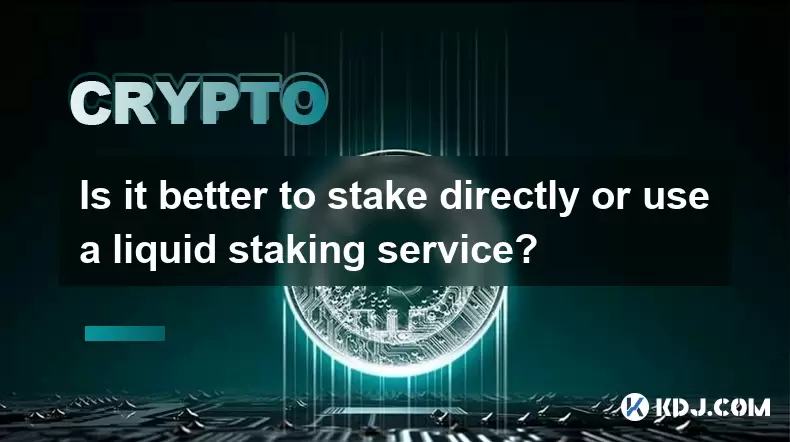
Is it better to stake directly or use a liquid staking service?
Jul 22,2025 at 08:21pm
Understanding the Basics of StakingStaking in the context of blockchain and cryptocurrency refers to the process of locking up digital assets to suppo...

What to do during an LST depeg event
Jul 20,2025 at 04:57pm
Understanding LST Depeg EventsAn LST (Liquid Staking Token) depeg event occurs when the token, which is typically pegged to the value of the underlyin...
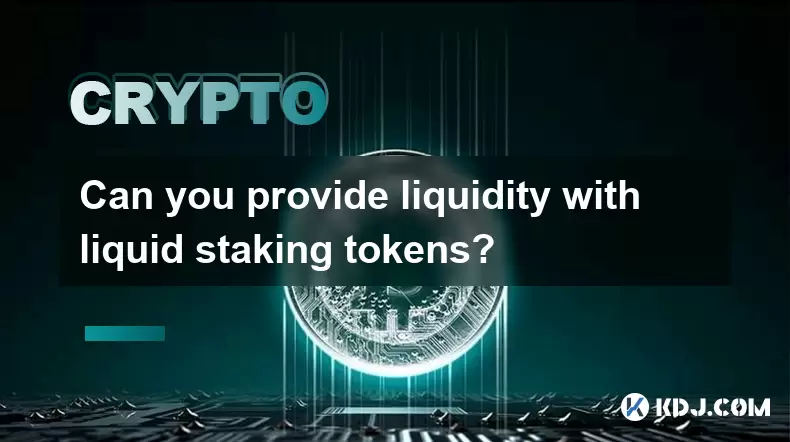
Can you provide liquidity with liquid staking tokens?
Jul 22,2025 at 10:22am
Understanding Liquid Staking TokensLiquid staking tokens (LSTs) are derivative tokens that represent staked assets on a proof-of-stake (PoS) blockchai...
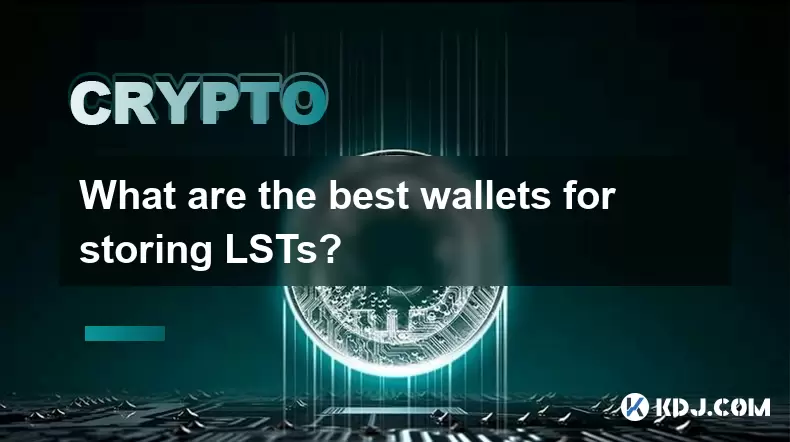
What are the best wallets for storing LSTs?
Jul 21,2025 at 03:14pm
Understanding LSTs and the Need for Secure StorageLSTs, or Liquid Staking Tokens, are derivative tokens representing staked assets on a blockchain. Wh...
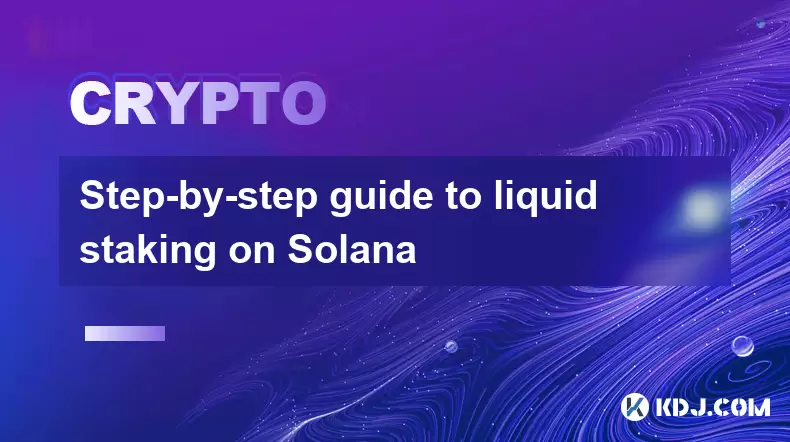
Step-by-step guide to liquid staking on Solana
Jul 20,2025 at 06:42am
What is Liquid Staking on Solana?Liquid staking is a mechanism that allows users to stake their cryptocurrency while retaining liquidity through the i...

Understanding the composition of a liquid staking token's yield
Jul 20,2025 at 09:07am
What Is a Liquid Staking Token?A liquid staking token is a representative asset issued to users who stake their native cryptocurrency on a proof-of-st...

Is it better to stake directly or use a liquid staking service?
Jul 22,2025 at 08:21pm
Understanding the Basics of StakingStaking in the context of blockchain and cryptocurrency refers to the process of locking up digital assets to suppo...

What to do during an LST depeg event
Jul 20,2025 at 04:57pm
Understanding LST Depeg EventsAn LST (Liquid Staking Token) depeg event occurs when the token, which is typically pegged to the value of the underlyin...

Can you provide liquidity with liquid staking tokens?
Jul 22,2025 at 10:22am
Understanding Liquid Staking TokensLiquid staking tokens (LSTs) are derivative tokens that represent staked assets on a proof-of-stake (PoS) blockchai...

What are the best wallets for storing LSTs?
Jul 21,2025 at 03:14pm
Understanding LSTs and the Need for Secure StorageLSTs, or Liquid Staking Tokens, are derivative tokens representing staked assets on a blockchain. Wh...

Step-by-step guide to liquid staking on Solana
Jul 20,2025 at 06:42am
What is Liquid Staking on Solana?Liquid staking is a mechanism that allows users to stake their cryptocurrency while retaining liquidity through the i...
See all articles

























































































